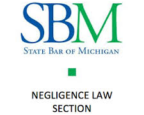
If you have been involved in a motor vehicle accident in Michigan, you will quickly become acquainted with Michigan’s no-fault system. As someone injured in a car crash, you need to understand the details of Michigan’s no-fault laws and understand your rights and options under the no-fault system so that you can maximize your financial recovery for the injuries and damages you’ve suffered in the accident.
We’ve provided information to help you understand Michigan’s no-fault laws and your right to benefits. If you have any questions about how the no-fault laws apply to your situation, contact the skilled Michigan personal injury accident attorneys at Christensen Law.
We’re happy to review your case and discuss how we can help you in a free, no-obligation consultation. Call us today or reach out online.
Understanding No-Fault Benefits
No-fault benefits are a type of coverage included in your Michigan auto insurance policy, unless you opt out under special circumstances. This coverage protects you and your passengers in the event of an accident, regardless of who may have been at fault for the accident – including even if you were entirely responsible for the crash.
No-fault benefits, also sometimes called personal injury protection (PIP) coverage or first-party coverage, provides you and your passengers compensation for:
- “Allowable” medical expenses not covered by your health insurance, including co-pays and deductibles, for any treatment that you need for your injuries
- 85 percent of your lost wages (up to a statutory cap that adjusts each year) for time missed from work while recovering from injuries suffered in a motor vehicle accident, for a period of up to three years
- Up to $20 per day for “replacement services,” including household chores and services like cleaning, laundry, and lawn care that you can no longer do yourself due to your injuries
Levels of PIP Coverage
In the past, Michigan PIP coverage allowed for unlimited lifetime medical coverage for accident-related care. That changed in July 2020 when a new law allowed policyholders to purchase coverage with different limits.
The levels of PIP coverage available in Michigan include:
- Unlimited PIP coverage – this is the best option for most drivers
- $500,000 of PIP coverage
- $250,000 of PIP coverage
- $50,000 of PIP coverage, if you’re on Medicaid
You can opt out of PIP insurance completely if you have health insurance that covers car accidents. However, many health insurance policies do not cover car crash injuries.
These limits apply to the care of your entire family if injured in the accident. For example, if four of your family members are injured and you purchased only $250,000 of PIP coverage, that would apply to all of their hospital and medical bills. It would not go very far toward getting them back on their feet.
Purchasing a policy with unlimited PIP coverage is advisable in almost all situations. While you can buy less PIP coverage and may stand to save a few dollars or your insurance premium, the safest choice to protect you and your family is to get a PIP policy without limits.
Can You Sue an At-Fault Driver After an Accident in Michigan?
Yes, it is possible to bring a claim against the driver who was at fault for the crash. If you have limited PIP coverage and your medical expenses exceed the PIP policy limit, the law allows you to pursue compensation from the at-fault driver for the amount not covered by PIP.
In most cases, you would seek compensation from the at-fault driver’s liability insurance.
For example, say you had $250,000 in PIP coverage on your auto policy, but you suffered $300,000 in damages. You could seek compensation from the at-fault driver’s liability coverage for the $50,000 that was not covered by your PIP policy.






























